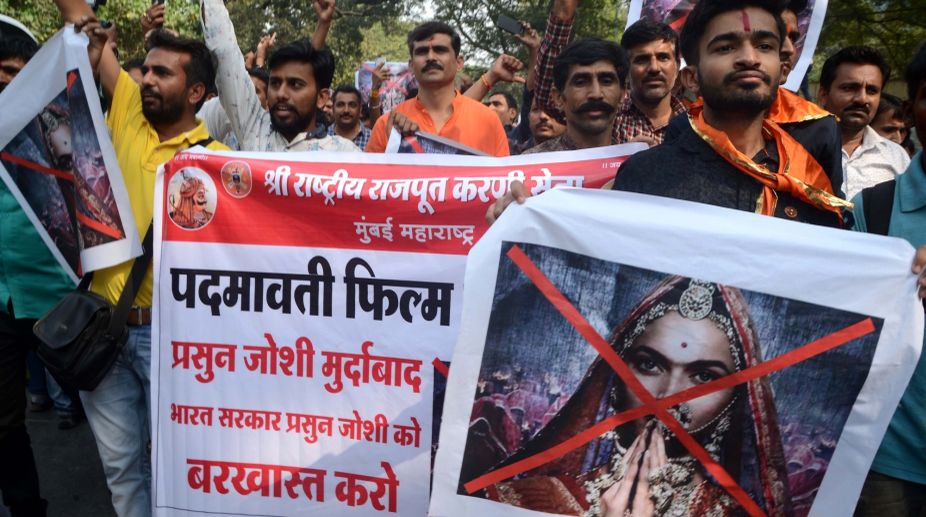Assam’s grand Jhumoir show: 8,000 performers, PM Modi to attend
Assam’s Jhumoir Binandini event on February 24 will feature over 8,000 performers showcasing the traditional Jhumoir dance at Sarusajai Stadium, Guwahati.

Representational Image (Photo Credits: IANS)
Mahendra Singh Mewar, the 76th descendant of the Mewar dynasty and a former Lok Sabha member, has criticised the Supreme Court order allowing country-wide release of Sanjay Leela Bhansali’s Padmaavat, saying artistic freedom is “anti-national” if it plays with history and nation’s heritage.
In a letter addressed to Prime Minister Narendra Modi and Rajasthan Chief Minister Vasundhara Raje, Mahendra Singh said they object to the “commercial exploitation and misrepresentation of actual historical” facts presented on the big screen based on a “filmmaker’s fantasy”.
Advertisement
“Artistic freedom has been commented upon by the Hon’ble Supreme Court. It may be observed that the freedom of speech is not absolute even under the Constitution of India. Artistic freedom cannot result in distortion of a heritage that is now also national heritage. Nor can it demean its dignity. If it does so, artistic freedom is both anti-national and an attack on constitutional rights of private citizens.”
Advertisement
The Supreme Court on Thursday paved the way for the all-India release for Padmaavat on January 25 by staying the operation of orders by the Gujarat, Rajasthan and Haryana governments banning its release. Making it clear that states can’t ban the release of a film cleared by the Central Board of Film Certification (CBFC), the court said that “creative art can’t be guillotined”.
The former royal said that “the decision has reportedly only clarified that the Central Board of Film Certification has the authority to decide which film is to be released in this country”, adding that their objection was “to commercial exploitation and misrepresentation of actual historical personages, places and events clearly identified with names used to provide stature to a filmmaker’s fantasy”, he added.
He also stated that had the film not used names to identify a particular family, area and a chapter of its history, “artistic freedom and intention would not have been objected to”.
Mahendra Singh asked if the CBFC asked “anyone familiar with the poem Padmaavat to view the film in order to verify the claims of the film makers. “Why was there a need for historians in the panel appointed by the CBFC if the film is fictional?”
Padmaavat, which stars Deepika Padukone, Ranveer Singh and Shahid Kapoor, has had a long history of trouble.
From being assaulted on the film’s set in Jaipur to the set being vandalised in Kolhapur to getting threats from detractors — Bhansali has been facing the ire of organisations that are up in arms against the period drama since its inception — from when it was titled “Padmavati”.
Months after facing opposition, the makers, Bhansali Productions and Viacom18 Motion Pictures, clarified that the film was based on 16th century Sufi poet Malik Muhammad Jayasi’s epic poem Padmaavat, and does not distort historical facts — as was being alleged by some Rajput outfits.
Advertisement